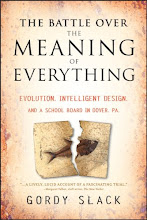A thought provoking and disturbing story in Tuesday’s Times focuses on sudden death from epilepsy (Sudep), describing it as epilepsy’s “silent killer.” “Silent” may be a stretch, but it is certainly under-discussed in clinical settings and under-studied in labs. I’m writing a book about epilepsy and I had no idea that it was as pervasive a killer of epileptics as Aliyah Baruchin reports. According to the piece, “Sudep accounts for up to 18 percent of all deaths in people with epilepsy, by most estimates; those with poorly controlled seizures have an almost 1 in 10 chance of dying over the course of a decade.”
Given that about 50 million people suffer from epilepsy worldwide, we're talking about hundreds of thousands of Sudep deaths each year. And yet, American doctors rarely tell their patients with epilepsy about Sudep. The reason they don’t, Baruchin reports, is that it would pose too heavy a psychological burden on patients who are already hard-hit by the everyday difficulties of seizures. If there isn’t really anything patients can do about it, why tell them, doctors ask. (I suspect, from my own experience, American doctors also fail to discuss Sudep because they don’t have time.) Baruchin’s piece, good as it is, begs an important question here: Is there anything you can do to prevent Sudep even if you know about it? She reports that in Britain anti-Sudep products, like mattress alarms and structured pillows, are sold to ward off Sudep during sleep. But she presents no evidence that those products do anything at all or are even recommended by doctors in the UK.
Nonetheless, if patients face a heightened risk of dying from their epilepsy, they have a right to know. And doctors have the responsibility to tell them, even if it takes time and causes discomfort. Truth matters. For one thing, without some kind of collective acknowledgement of Sudep, it won’t get the attention it deserves from brain scientists.
Too often, doctors and scientists alike treat epilepsy simply as recurring seizures. But it is so much more. Disabling as they are, “seizures are often only the tip of the epilepsy iceberg,” says Frances Jensen, MD, professor of neurology at Harvard Medical School and director of epilepsy research at Children’s Hospital in Boston. “We’re beginning to pay attention to what’s down below. Often that includes other serious problems, too.” One of those other serious problems is the propensity to die suddenly and without warning. That deserves attention.
Subscribe to:
Post Comments (Atom)



2 comments:
Gordy:
This is the first I've ever heard of Sudep. I'll do some reading but it's scary and strange that I've had epilepsy all my life and have never heard of it EVER. My neurologist, who is an epileptologist just finished telling me that people don't ever die of epilepsy. Argh.
Thanks for talking about it.
-Jules
I was surprised by this, too. Especially by how prevalent it is. I'd be interested to hear what your neurologist says when you mention it to her; both what her take on Sudep is and why she never brought it up. Please let me know.
Post a Comment